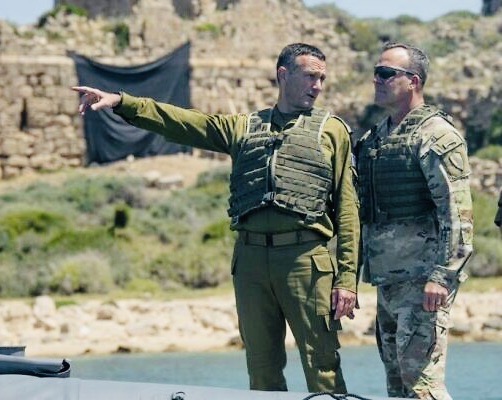Ever since the United States’ precipitous withdrawal from the 2015 nuclear agreement, or Joint Comprehensive Plan of Action (JCPOA), Iran has flagrantly violated its terms and forged significant progress in assembling a nuclear arsenal.
When Donald Trump, the then U.S. president, announced in 2018 that he was unilaterally pulling out of the JCPOA, which had kept Iran’s nuclear program reasonably in check, he may not have fully realized that Iran would react by taking full advantage of his hasty, counter-productive decision.
Five years on, the Iranian regime of President Ebrahim Raisi has accumulated enough highly enriched uranium to construct several nuclear weapons, according to Rafael Grossi, the director-general of the International Atomic Energy Agency.

William Burns, the director of the U.S. Central Intelligence Agency, has warned that Iran could enrich uranium to 90 percent weapons-grade within weeks.
Colin Kahl, the U.S. under-secretary of defence for policy, believes Iran could produce sufficient fissile material for one nuclear bomb within two weeks. In his estimation, Iran has made “remarkable” progress since Trump’s withdrawal from the JCPOA.

Experts believe that Iran’s ability to produce weapons-grade uranium for a nuclear bomb has shrunk from one year to about a week.
And Iran possesses the capability to manufacture a nuclear device within six months, says David Albright, the head of the Institute for Science and International Security, a private organization in Washington which monitors the spread of nuclear arms.
During this period, Iran has been upgrading its long-range missile capabilities. Iran’s stock of missiles could be used to carry a nuclear warhead.

Most recently, Iran successfully tested a hypersonic missile, which is extremely difficult to shoot down, but which Israel may have the capability to intercept now that it has developed the first-of-its-kind anti-hypersonic missile defence system.

All these developments have alarmed the United States and Israel.
In recent weeks, the United States has been negotiating with Iran in Oman to limit its nuclear program. Under its proposal, Iran would refrain from enriching uranium beyond its current production level of 60 percent, according to The New York Times.
Last month, Israeli Defence Minister Yoav Gallant warned that Iran has amassed enough fissile material for five nuclear bombs. “Make no mistake, Iran will not be satisfied with a single nuclear bomb,” he said.
“If Iran enriches to the 90 percent weaponized level, it would be a great error, and the price would be heavy.” Gallant added that a regional war could erupt in the Middle East if Iran enriches uranium to weapons-grade.
Zohar Palti, the former director of Israel’s political-military bureau in the Ministry of Defence, said last December that Iran is capable of enriching uranium to 90 percent. “Iran is at a more advanced level than I can ever remember when it comes to uranium enrichment.”
Palti claimed that Israel has the military capabilities to attack Iran’s nuclear facilities. “I am not implying that Israel is capable, I am saying it is.”
Israel, in recent years, has targeted Iran’s nuclear program by means of secret sabotage operations, some of which have been carried out with the explicit or tacit cooperation of its chief ally, the United States.
For more than a decade now, the Israeli government has been threatening to launch air strikes against Iranian nuclear sites. Of late, Israel has ramped up its warnings and preparedness.

On June 8, the Israeli armed forces completed Operation Firm Hand, a two-week exercise designed to test Israel’s ability to fight Iran and its regional proxies on various fronts.

As this military drill unfolded, Israeli Prime Minister Benjamin Netanyahu and his security cabinet met in a command bunker in Tel Aviv to simulate political decision-making during a mock multi-front war.
On May 23, the chief of staff of Israel’s armed forces, General Herzi Halevi, suggested that Israel may have to act militarily against Iran. “Iran has made more progress in uranium enrichment than ever before,” he said. “We are also closely examining other aspects of (Iran’s) path to nuclear capability. Without going into details, there are possible negative developments on the horizon that could prompt action.”

Netanyahu’s national security advisor, Tzachi Hanegbi, said that Israel may have no alternative but to strike Iran. “If we believe there is no avoiding military action against the nuclear facilities in Iran … I think that any Israeli leader will have full backing from Israel’s citizenry and the state to do what Menachem Begin did in 1981, what Olmert did in 2007. To act when all the other options aren’t effective anymore.”
Hanegbi, of course, was referring to Israel’s destruction of Iraq’s and Syria’s nuclear reactors.

In April, Halevi played host to General Michael Erik Kurilla, the commander of the U.S. Central Command, which is in charge of military operations in the Middle East.
In the past year, Kurilla has visited Israel several times to discuss matters of mutual interest and concern, of which Iran tops the agenda. During one of his visits, Israel and the United States carried out a joint naval exercise in the Bab el-Mandeb strait, which connects the Red Sea to the Gulf of Aden.
And in a show of force more recently, Israeli aircraft escorted U.S. bombers flying over Israel’s airspace en route to the Persian Gulf.

This past January, U.S. Secretary of State Antony Blinken visited Israel. Gallant, his host, said, “We speak in one voice when we say that Iran must not gain a nuclear weapon, and that we will not tolerate Iranian aggression.”
At this juncture, two burning questions remain to be answered.
Is Israel ready to translate rhetoric into action regarding Iran’s budding nuclear program? And would the United States actively support an Israeli military campaign against Iran?
The Biden administration would much prefer to resolve this gnawing and potentially explosive issue by diplomatic means, judging by its talks with Iran in Oman, but Israel is getting antsy and may, in desperation, resort to military methods to deal with this problem conclusively.
